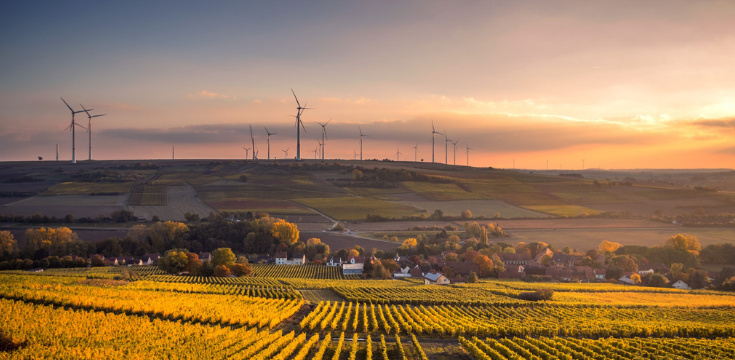Putting a price on carbon means renewables will be the cheapest source of power.
Under Europe’s current emissions trading scheme (ETS), emissions must be cut by a further 27% by 2030, versus the level set prior to 2018. The latest policy initiatives associated with the €1 trillion European Green Deal will likely deepen that cut to around 47%.
The way the ETS functions is that you get a linear fall-off on the issuance of certificates, which drives up the price of certificates for those who don’t cut emissions.
The core target of the ETS is power generation. Already, there’s been significant adoption of renewables and we think that will continue. Probably the game-changer for renewables is hydrogen. Hydrogen is emerging as essentially a way to replicate a low-cost battery for excess renewable power. When grids become unstable, it’s about finding a renewable energy source to replace base load, carbon-intensive gas and coal and that’s where hydrogen is starting to play a role.
As the carbon price goes up, you get an accelerated shift towards decarbonisation. The carbon price also generates tax revenues. When the government sells certificates, that money goes to each of the European countries. You can basically then use subsidies to decarbonise the parts of the economy in which emissions are not being caught by the ETS. Those parts of the economy tend to be transport (burning gasoline and diesel) and also domestic heating (burning gas) – so we’ve got this opportunity for the Europeans to really shift towards electric vehicles, shift away from gas and use electric based heat pumps in housing.
We see both of these together as a $2.5 trillion-dollar investment boom in Europe. That number is over 10 years, which is the equivalent of an incremental investment spending of about 1.5% of GDP.
This is very significant, and we think investors should be thinking about how to position portfolios for what is a very long term cycle.
Currently in Antipodes’ portfolios, we have roughly a 12.5% exposure to this cycle.
This exposure is split between capital providers (the companies deploying renewables) such as EDF (Électricité de France) and RWE AG. We also have exposure to companies that will benefit from increased demand for the materials crucial to the shift to battery such as miner IGO Limited and aluminium producer Norsk Hydro.
The third cluster in this exposure is the Enablers – companies geared for the significant level of investment spending coming through. Companies here include Siemens Gamesa, Siemens, Volkswagen and ST Microelectronics.
This is an edited transcript of part of Jacob Mitchell’s presentation during Antipodes’ July 2020 Webinar.
Watch the highlight below or click here to access the full webinar.
Subscribe to receive the latest insights and updates from Antipodes

